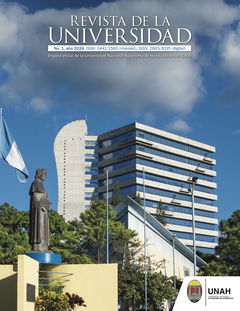The maritime campaigns of Francisco Morazán: context and development
DOI:
https://doi.org/10.5377/ru.v1i1.19130Keywords:
Francisco Morazán, Great Britain, naval campaign, interference, industrial revolutionAbstract
With the rise of the Industrial Revolution and the defeat of Napoleon in 1815, Great Britain became the hegemonic Empire throughout the 19th century. The advantages offered by optimized transportation and more efficient manufacturing made the Honduran Atlantic coast an object of desire with which London hoped to sustain its economic and demographic growth. To this end, Great Britain maintained a foreign policy of interference towards weak nations such as those of Central America. In the midst of internal disputes over the maintenance of the Central American Federation, Francisco Morazán denounced these actions and after being exiled decided to return to face the threat posed by the Misquito Kingdom, a British protectorate. To do so, he decided to carry out a naval campaign in the Gulf of Fonseca in which he put the Central American authorities in check. These nations tried to hire a British warship to hunt him down. The campaign ceased abruptly when Morazán left for Costa Rica, but not before having made evident the British interests and their respective actions in the area.
707
Downloads
Published
How to Cite
Issue
Section
License
Copyright (c) 2024 Revista de la Universidad

This work is licensed under a Creative Commons Attribution-NonCommercial-ShareAlike 4.0 International License.




